It was not until I went on a field trip to the traditional lands of the Auyu People (also written as Awyu in the Indonesian language) last June that I appreciated just how remote many of their settlements are, deep in the territory known internationally as West Papua, just across from the border with Papua New Guinea. The village I visited, Yare, is located in Boven Digoel district, part of the newly formed province of South Papua. It was a seven-hour trip from the district capital Tanah Merah to Yare by longboat, motorcycle, and motorised canoe known as ketinting.
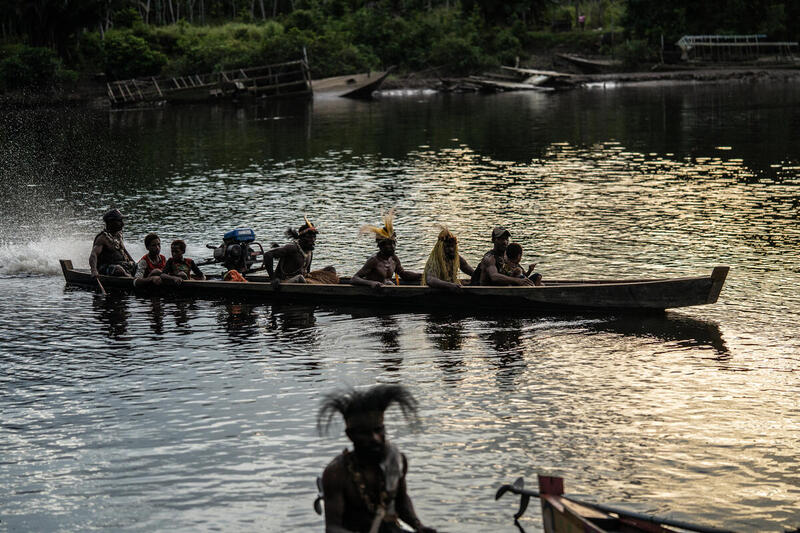
The village is located in a richly forested area that is under threat from plantation industry land grabbing and deforestation. With support from Greenpeace Indonesia, Pusaka Bentala Rakyat Foundation, Papua Legal Aid Institute, and other NGOs, members of the Auyu have launched several legal actions to defend their customary forest from companies seeking to clear the land for plantations. Along with four other colleagues from Greenpeace Indonesia, I was on a field trip to witness and document the lives of the Auyu and their relationship with the land that they inhabit.
The Journey
We set off from the port town of Tanah Merah on the Digoel River, one of the world's last great free-running 'wild' tropical rivers, that winds unimpeded 853 kilometres southwards from Papua's mountainous spine down to the Arafura sea with the northern tip of Australia a stone's throw away. Boarding a longboat, we rode downstream for the best part of an hour until we reached Ampera, where we took a turn into a tributary before stopping at the riverbank.
Then, surprisingly, came the hardest part of the journey: a two-hour motorcycle ride to cross overland from the Digoel to the Mappi River at Fofi. For most of the 42-kilometre route our bikes lurched and slid across the muddy red dirt road. Thankfully, it had only drizzled that day - if there had been one of the area's frequent downpours, the ride would have been even less of a picnic.
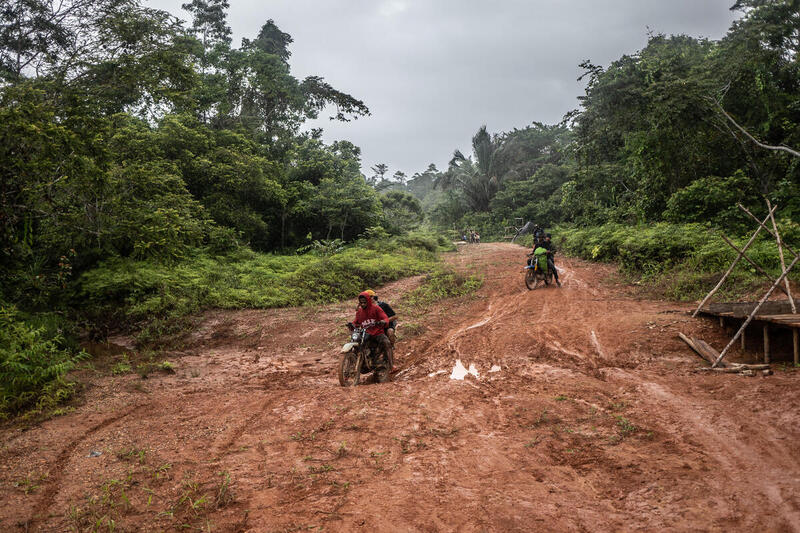
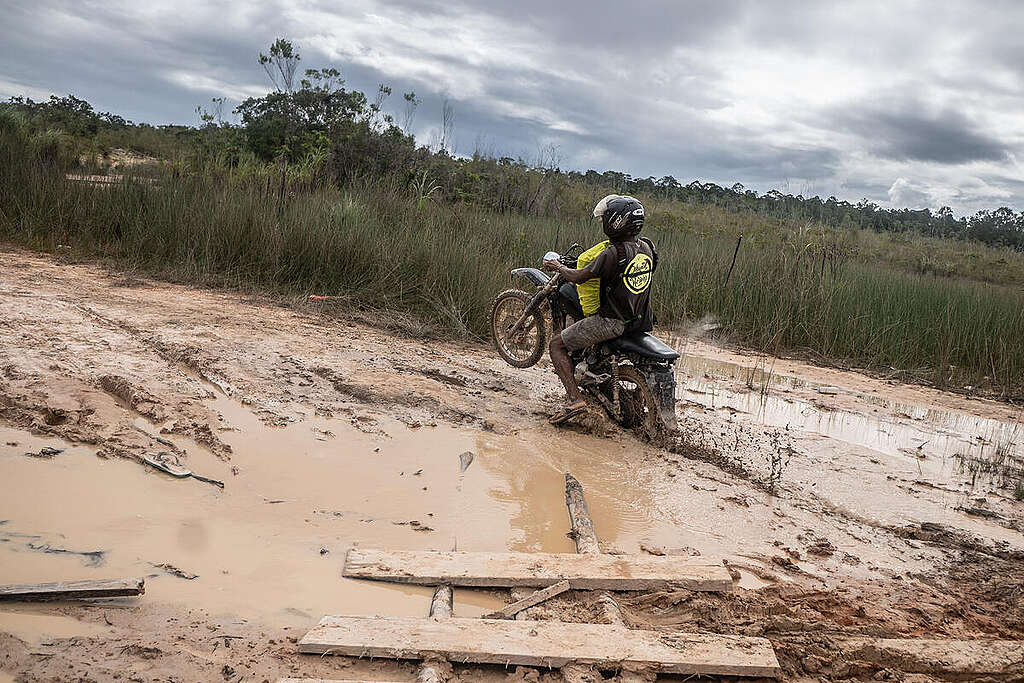
We reached Fofi in the afternoon, from where we motored in small ketinting down the Mappi River to our final destination at Yare Village. The hour and a half aboard the canoe gave me an eerie feeling. Perhaps it was because of the denseness of the surrounding forest dwarfing the ketinting and creating echoes of its engine sounds. We were told by Hendrikus 'Franky' Woro, environmental defender and leader of the Woro clan of the Auyu people, that crocodiles roam the river. Fortunately, none of them made themselves known during our trip.
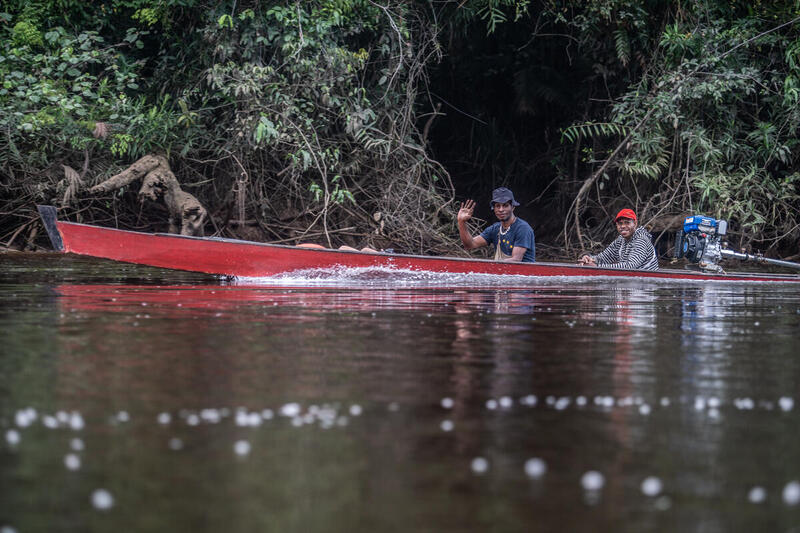
A Village Greeting
It was almost dusk when we arrived at Yare village. To our surprise, the Auyu from two nearby villages were also gathered there. Brandishing shields and bows, men and women with traditional body paint and bird of paradise headdresses greeted us with their customary welcoming dance.
As the Auyu women sang we could discern "a team from Jakarta" in the lyrics. We found out later that the song was created for the occasion of our visit by Veronika Sifi, an Auyu woman. The song mentioned our visit, all the way from Jakarta, to help them defend their land. It was a lovely song but laced with sorrow as it highlighted the threats hanging over their lands.
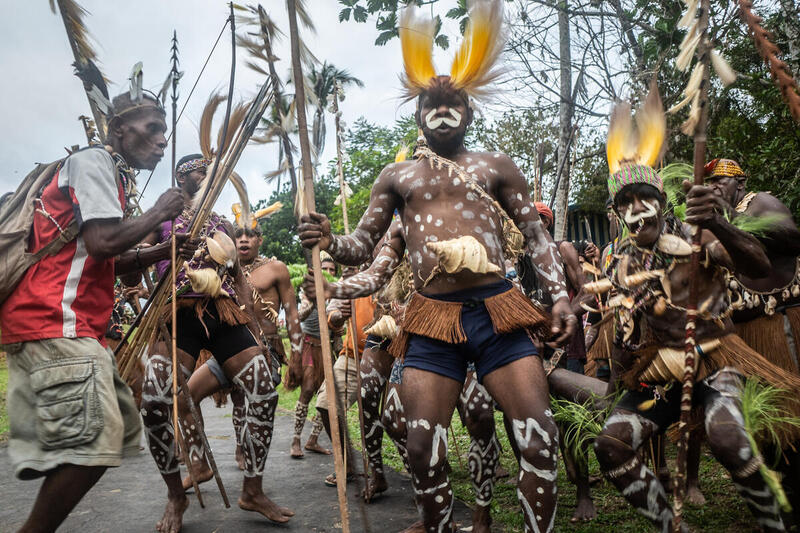
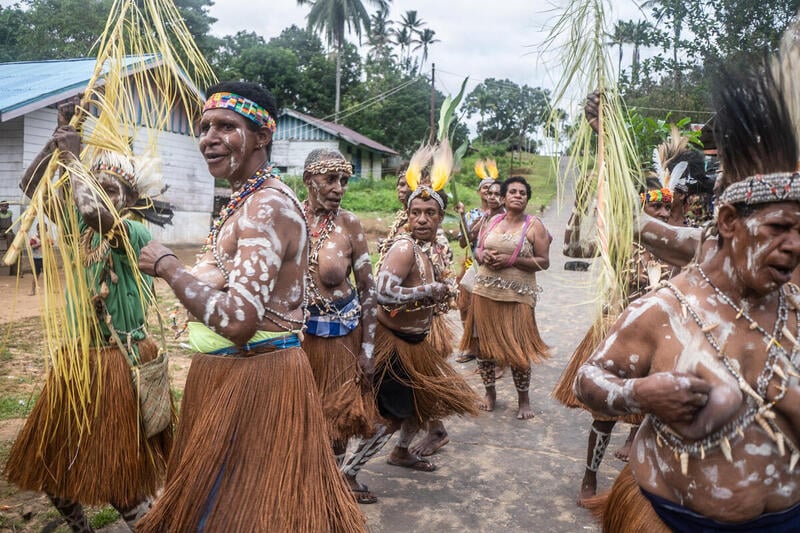
We stayed in Yare village for five days, witnessing and documenting the life of the Indigenous Auyu and how dependent they are on their lands, forests, rivers, swamps, and other natural resources for their livelihood. We joined Auyu women to collect and process sago-the staple food for most lowland Papuan communities.
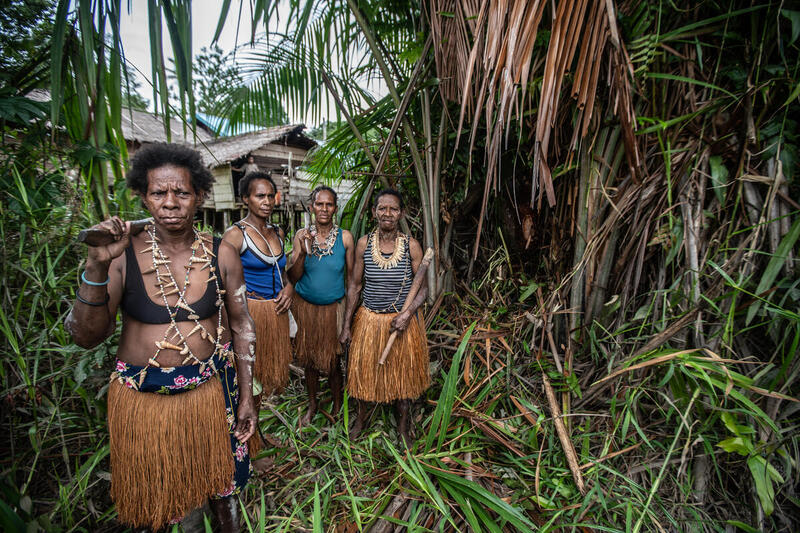
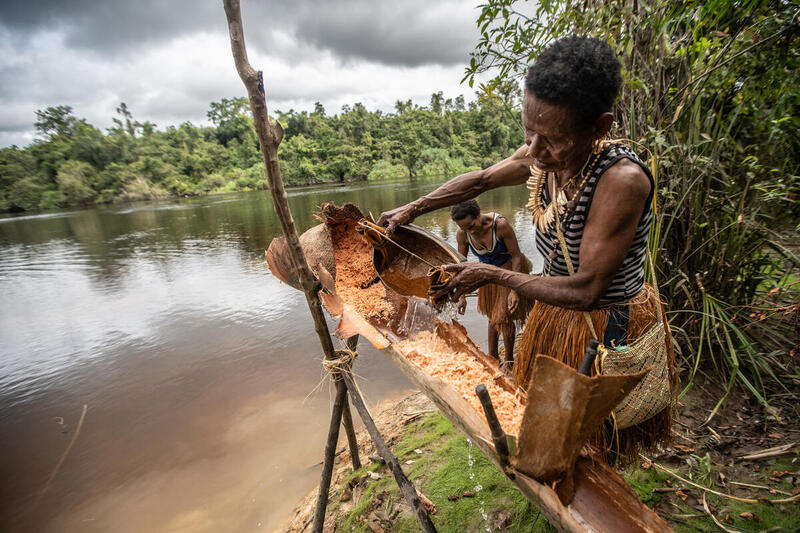
To the Auyu, the forest is an 'eternal bank account'. Food, medicine, traditional clothing to building materials, the forest provides everything and is therefore entwined with the Auyu's cultural identity.
Besides rainforests, rivers and wetlands also play important roles in the traditional economy of the Auyu people. While wells are unfamiliar there, the Auyu take water from rivers or wetlands for cooking, drinking, and showering. They say they do not need to boil water collected from the nearby rivers, and can drink it safely straight away.
On the third day of our visit, we followed the Auyu deep into their customary forest area that has fallen under the shadow of a government-issued concession for clearance to make way for an industrial palm oil plantation. The people of Yare village are not unique in this plight - many Indigenous lands in Papua are now under threat from the industry, with almost a million hectares of forest land released for plantations since 2000, according to Greenpeace International's report License to Clear: The Dark Side of Permitting in West Papua.
It was a three-hour trek through the pristine rainforest, rich in biodiversity. As we walked, our Auyu friends explained the versatility of the trees that we encountered along the way in their daily lives.
Budiarti Putri is the Communications Campaigner at Greenpeace Indonesia






